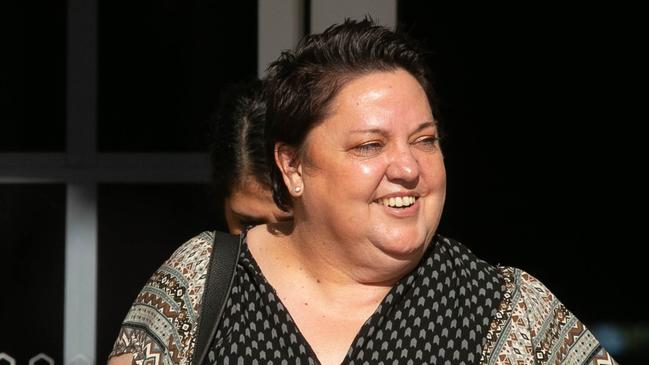Banking royal commission: insurer admits flat rate for babies in indigenous funeral plans
Aboriginal Community Benefit Fund has admitted to having a flat funeral insurance rate for babies.

Funeral insurer Aboriginal Community Benefit Fund has admitted that it had a flat rate it charged babies signed up to its policies and that thousands of children were recruited as it attempted to sell as many funeral plans as possible.
Appearing at the banking royal commission hearings in Darwin yesterday, ACBF chief executive Bryn Jones admitted about 30 per cent of its policyholders were younger than 18, while 15 per cent were aged between 18 and 25.
Counsel assisting, Rowena Orr, probed Mr Jones on whether he “actively” attempted to sell policies for the children and grandchildren of indigenous people. Mr Jones cited mortality rates of Aboriginal people as a reason why they may need the policies, and admitted the company had a “standard fee” for customers signed up from birth. Anyone under 70 can be signed up to its policies, which charge higher fees for people with certain illnesses.
Mr Jones admitted ACBF had produced inaccurate media statements less than a week before it was scheduled to appear at the royal commission, hiding the fact it was forced to overhaul its corporate structure after it breached anti-hawking laws.
The inquiry heard yesterday that ACBF, through its lawyers, had attempted to force customer Tracey Walsh to drop a complaint that she had been misled that it was an Aboriginal company.
Ms Walsh, an administrative assistant for an Aboriginal co-operative called Rambalara in Victoria, said she was threatened with losing more than $10,000 she had paid to ACBF — for only $8000 worth of funeral expenses cover — if she stopped making fortnightly payments.
“I felt like they had me over a barrel,” she told the commission yesterday. “People haven’t been told the truth about these policies.”
Aboriginal people had been “used and used and used over the generations”, Ms Walsh said.
ACBF, which is not owned or managed by indigenous Australians, only recently hired Aboriginal or Torres Strait Islander people after deciding to “transition” away from a business model of unsolicited door-to-door sales.
Mr Jones agreed with Ms Orr that its June 29 media release — describing why it was forced to change its corporate structure — was “not accurate”. ACBF had blamed it on an “external” law change but in reality the firm had been found to have breached financial services laws.
An anti-hawking provision prevented its continuing to sell its funeral insurance policy following a Federal Court case brought by the Australian Securities & Investments Commission in 2004. So, in 2005, ACBF set up a “funeral expense policy” whereby payouts went towards funeral costs and not the policyholder, which allowed it to skirt anti-hawking rules.
Mr Jones said he was appointed as a director and chief executive of the Gold Coast-based company last year because a “fresh and transparent” perspective was needed. He had “immediately” contacted Aaron Davis, head of the Indigenous Consumer Assistance Network, to see what the company could do better.
Mr Davis told The Australian: “Bryn and I met once at my office and I told him in no uncertain terms that until they stopped selling funeral insurance to children, ICAN would have nothing to do with them. I believe Bryn has a great ability to ease his conscience with indigenous mortality stats.”
Earlier, Nathan Boyle, ASIC policy analyst for its Indigenous Outreach Program, described a phenomenon known as “gratuitous concurrence” — a tendency of Aboriginal people to agree to a proposition whether or not they supported it. Mr Jones said he found Mr Boyle’s testimony “really informative”. But he said: “It was never our intention to rip people off. That’s the god honest truth.”



To join the conversation, please log in. Don't have an account? Register
Join the conversation, you are commenting as Logout